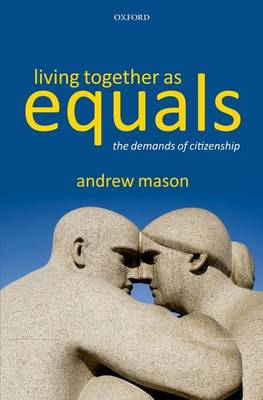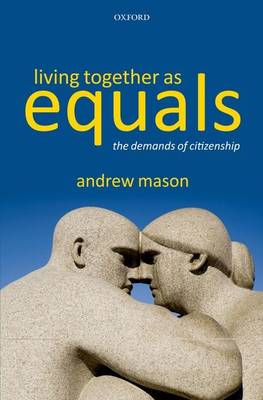
- Afhalen na 1 uur in een winkel met voorraad
- Gratis thuislevering in België vanaf € 30
- Ruim aanbod met 7 miljoen producten
- Afhalen na 1 uur in een winkel met voorraad
- Gratis thuislevering in België vanaf € 30
- Ruim aanbod met 7 miljoen producten
Zoeken
€ 202,45
+ 404 punten
Omschrijving
Traditional understandings of citizenship are facing a number of challenges. Ideas of cosmopolitan and environmental citizenship have emerged in the light of concerns about global inequality and climate change, whilst new models of multicultural citizenship have been developed in response to the dilemmas posed by immigration and the presence of national minorities. At the same time, more particular debates take place about the demands citizenship places upon us in our everyday lives. Do we have a duty as citizens to take steps to reduce the risk of needing to rely upon state benefits, including health care? Does good citizenship require that we send our children to the local school even when it performs poorly? Does a parent fail in his duty as a citizen - not just as a father, say - when he is less involved in the raising of his children than their mother? Should citizens refrain from appealing to religious reasons in public debate? Do immigrants have a duty to integrate? Do we
have duties of citizenship to minimise the size of our ecological footprints? This book develops a normative theory of citizenship that brings together issues such as these under a common framework rather than treating them in isolation in the way that often happens. It distinguishes two different ways of thinking about citizenship both of which shed some light on the demands that is makes upon us: according to the first approach, the demands of citizenship are grounded exclusively in considerations of justice, whereas according to the second, they are grounded in the good that is realised by a political community the members of which treat each other as equals not only in the political process but in civil society and beyond.
have duties of citizenship to minimise the size of our ecological footprints? This book develops a normative theory of citizenship that brings together issues such as these under a common framework rather than treating them in isolation in the way that often happens. It distinguishes two different ways of thinking about citizenship both of which shed some light on the demands that is makes upon us: according to the first approach, the demands of citizenship are grounded exclusively in considerations of justice, whereas according to the second, they are grounded in the good that is realised by a political community the members of which treat each other as equals not only in the political process but in civil society and beyond.
Specificaties
Betrokkenen
- Auteur(s):
- Uitgeverij:
Inhoud
- Aantal bladzijden:
- 272
- Taal:
- Engels
Eigenschappen
- Productcode (EAN):
- 9780199606245
- Verschijningsdatum:
- 26/07/2012
- Uitvoering:
- Hardcover
- Formaat:
- Genaaid
- Afmetingen:
- 236 mm x 160 mm
- Gewicht:
- 521 g

Alleen bij Standaard Boekhandel
+ 404 punten op je klantenkaart van Standaard Boekhandel
Beoordelingen
We publiceren alleen reviews die voldoen aan de voorwaarden voor reviews. Bekijk onze voorwaarden voor reviews.











